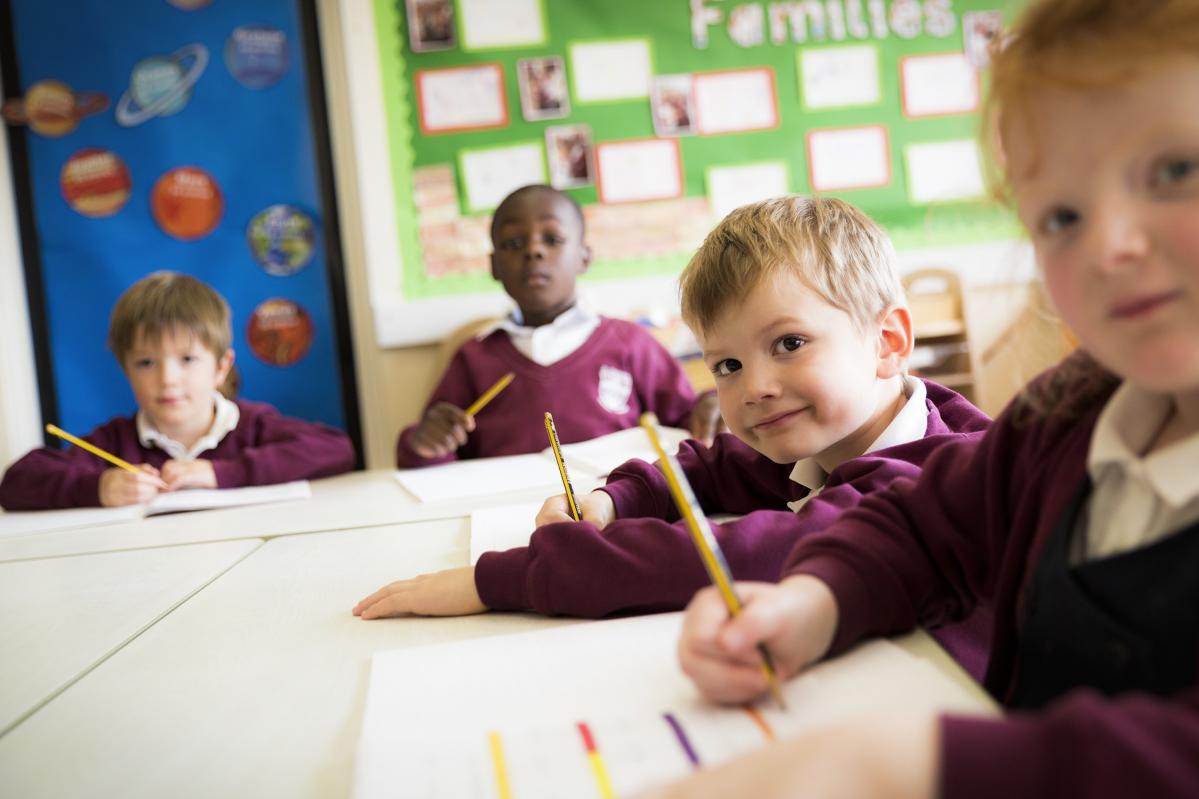English Writing


"Every child is a natural born writer!"
- Carole Marsh
At St Charles' Catholic Primary School, we believe that literacy and communication are key life skills. It is our role, through the English curriculum, to help children develop the skills and knowledge that will enable them to communicate effectively and creatively with the world at large, through spoken and written language.
Aims and Objectives:
At our school, our intent is to promote high standards of language and literacy by equipping children with a strong command of the spoken and written word, and to develop their love of literature through widespread reading both across the curriculum and at home. Through the implementation of our English Writing curriculum, we aim to ensure that all pupils:
- acquire a wide vocabulary, an understanding of grammar and knowledge of linguistic conventions for reading, writing and spoken language
- appreciate our rich and varied literary heritage
- write clearly, accurately and coherently, adapting their language and style in and for a range of contexts, purposes and audiences
- use discussion in order to learn; they should be able to elaborate and explain clearly their understanding and ideas
- are competent in the arts of speaking and listening, making formal presentations, demonstrating to others and participating in debate.
Writing:
In all Key Stages a range of genres are taught, including fiction, non-fiction and poetry. Along with discrete English units, cross-curricular writing opportunities are used as often as possible. In KS1, we have implemented our own bespoke teaching approach across the school which involves teaching writing through sequential stages. The process begins by the children immersing themselves in a text or animation through story mapping, oral retelling, drama and games. This then progresses to deconstructing the text to identify what makes it work, and creating a toolkit for their own writing. The second stage of the process involves shared writing and up-levelling writing to adapt the text to create a new piece of writing, based closely on the model genre. Teacher guidance and modelling at this stage enables pupils to learn the process of writing, and to share in the process of checking and assessing against co-constructed success criteria. The final stage is when pupils can take what they have learnt and apply it by writing their own text in the same genre. Pupils are encouraged to 'magpie' words from other sources to improve their writing. Each genre is taught sequentially following a structure which ensures high quality writing as a result of detailed text analysis, clarity of genre features, teaching and application of grammar and punctuation and key vocabulary.
Grammar, Punctuation and Spelling (GPS):
Improving pupils' understanding and use of grammar, punctuation and spelling is a key driver in our school.
Throughout Year 2 and Key Stage 2, we teach spelling lessons four times a week through Read Write Inc. and this focuses on specific spelling rules and patterns. Pupils are tested on these in weekly spelling quizzes that are made up of a combination of these focus spellings and spellings from the statutory spelling list of irregular words for their specific year group.
Punctuation and grammar knowledge and skills are taught in discrete weekly lessons and are then embedded in daily teaching of writing. Different objectives are taught following the St Charles' Grammar Curriculum in each year group. This has been planned in line with National Curriculum requirements. In addition to this, revision or extension of skills is targeted within each class to ensure that all pupils are making progress at their own level.
Termly grammar, punctuation and spelling tests are used to assess pupils' progress in this area and identify any gaps in learning.
Homework:
Across Key Stage 1 and Key Stage 2, pupils are set weekly English homework. This consists of a GPS task in which they can apply their GPS learning.
Spellings are sent home to learn weekly. These include a mixture of spellings using the taught spelling pattern and irregular or high frequency words from the National Curriculum at the appropriate year group. Children are expected to practise their weekly spellings in their spelling homework book in addition to applying each word in a sentence to ensure they can use the spelling in the correct context.
